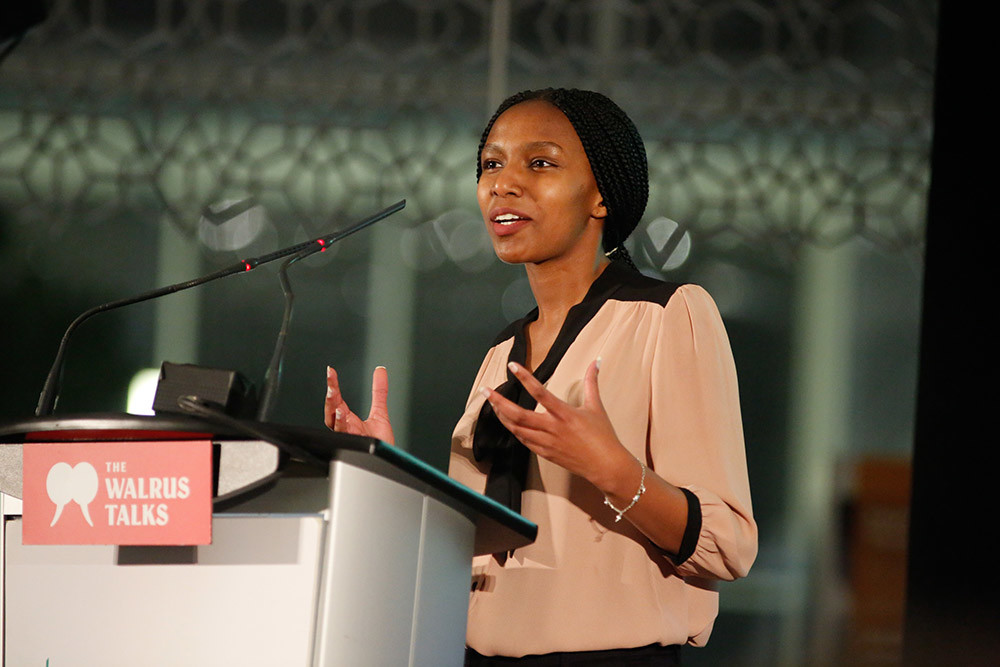
Africa’s “Aggressive Women” on the Rise
Scholar explains how “aggressive women” are reclaiming their voices
The first time I heard the term “aggressive woman,” I was about seven years old. At a very young age, I would ask my parents for permission to go play with my friends. Sometimes they would say no, but I would always bug them with a million questions until they gave me a reason of why not. I was not one of the kids who would back away after being simply being told, “because I said so,” which by the way is so rare back at home.
I was an annoying and talkative child, but I wasn’t aggressive yet. It wasn’t until when I was in grade 3 and I had been knocking on my father’s door asking for school fees. For a week, his response was, “go away, I don’t have the money.” But I needed to get a solid response to give to my teacher, who every morning looked at me as if I was stealing.
So, one morning, I went and stood right in front of my father who was getting ready for work, looked straight in his eyes and said, “I want school fees and if you don’t have the money, I need you to tell me when you can get it to me.” Just as I had looked him in the eyes, he looked back with a somewhat disappointed face and said as he left the room, “uri umunyamahane wa gakobwa we!,” a Kinyarwanda phrase that translates to “you are such an aggressive little girl.”

Marie Merci Ishimwe, Mastercard Foundation Scholar at the University of Toronto, speaks at the Walrus Talks, September 2017.
Of course, this was not a compliment, it was belittling and to my knowledge by then insulting. I stood there for a minute thinking about those hurting words I had just heard, but later I ran after him to get the response I needed. Since then, I have lived up to the “aggressive girl” label my father had branded me with.
You see, I was deviant from the femininity norms that we are born and raised with. In Rwanda, girls are raised to be overly sweet, docile, and are in no way to raise their voice to an elder or a man. Not looking someone straight in the eye is considered well-disciplined. So, whenever I stood up for myself, like to my father, I was called annoying and aggressive. As an aggressive girl, at least according to my father, I didn’t care what people thought, especially my father, about my frankness as long as they listened and acted. I was called aggressive because I could not keep my mouth shut which I was supposed to do as a girl. I was called aggressive because I could not put on a masquerade to hide the girl that would always stand up and fight for what she wanted.
The reality is that this whole struggle is not just my story. In my village, many parents still send their sons to school while their daughters do home chores. Unlike me, who pressured my father to continue school, some of these young girls accept their “fate” as girls and miss the opportunity to discover the great people they could have been in the future through education. In the same way, their already “femininized” mothers don’t fight for a chance for their daughters to be different. Rather, they pass on the masquerade they have been putting on for years; the same masquerade that denied them an education and landed them into early marriages in the first place. The same masquerade that they keep on when they are beaten every day by their partners, and still wake up every morning and work tirelessly to do home chores and find dinner for their families.
Well, I get the fact that we have a culture, but what if that same culture makes us slaves of a masquerade we must create to fit in the normal boundaries of femininity, as seen by my village? What if that same culture discourages us from facing our true selves? Don’t we at least deserve a chance to discover our true potential, instead of what is perceived of us? I mean, what if every mother started being aggressive and fought for her rights for a life? What if those girls who miss school decided that it was enough and that they wanted an education? What if every mother taught their children to stand up for their rights instead of passing on the masquerade?
You see, when we put on a masquerade, we suppress our voices and feelings, thus our true selves. We fail to let the world know how great we are and how we can contribute. It is this masquerade that has rendered many women uneducated and many facing unending violence. It has made women just numbers without a voice. It has stolen from women and it has stolen from Africa and, I must say, that women deserve the right to be aggressive if that means standing up for ourselves. They deserve to define the femininity that suits them. Imagine great things that would blossom if women could remove this masquerade, raise their voices so that policies are made to include these voices. Imagine an Africa where women would get an education and be proud to be called “aggressive” because it is a compliment.
So, I urge every woman to be the “aggressive” woman that my dad labeled me, and fight for what is rightfully theirs, because only then will women lift the masquerade and be fully empowered to make Africa great.
Marie Merci Ishimwe is a Mastercard Foundation Scholar at the University of Toronto. She spoke at the Walrus Talks in Toronto in September 2017.


